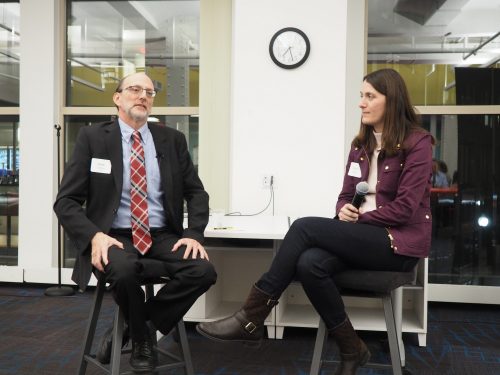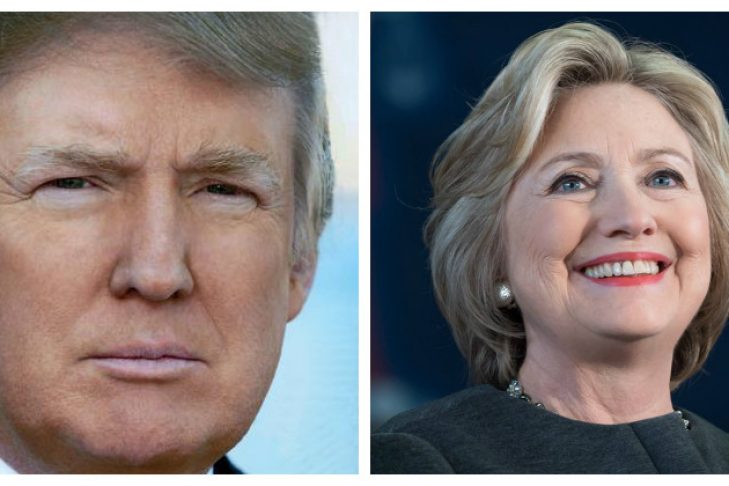We were fortunate to be able to sit down with Herb Keinon to discuss what the election could mean for U.S.-Israeli Relations. Herb is The Jerusalem Post’s veteran diplomatic correspondent and a frequent lecturer on Israeli diplomacy and public affairs. We were joined by over 1,000 users, a number of whom submitted excellent questions to Herb during a live “Ask Me Anything” event on israel360’s partner site, MySababa.org.
The highlights of our fascinating conversation are below.
What is it about the U.S election(s) that so fascinates Israelis? Beyond that, what fascinated you?
Herb Keinon: First of all, most Israelis appreciate the importance of the U.S.-Israel relationship, and understand that outside of their own government, there is no one on the planet who has more significance to their own personal security than the U.S. president. As a result, the identity of that person is vitally important. Secondly, there is in Israel a general fascination with what happens in America, partly because so many Israelis have spent time there, especially those in the media. And, finally, the craziness of this particular election has riveted Israelis, just as it has riveted Americans.

Q: The general consensus, regardless of candidate preference, is that the atmosphere over this election has been toxic. How does the partisanship in the 2016 race compare to the average Israeli national elections? Are we just spoiled with a two-party system? Is this level of nastiness the norm in Parliamentary systems?
HK: Israelis often look at its own political dysfunction, and say, “Well, this would never happen in a ‘real’ country, this would never happen in America.” The tenor of the campaign has driven home the idea that although there may be problems with how we chose our leaders in Israel, no system is without its problems — even America.
I think the overall ugliness of the campaign has had a sobering impact on the Israeli public, which has a tendency to over-idealize the American system.
Q: I’m interested in the idea of a “relations reset.” How do you think the U.S.-Israel relationship changes under each candidate?
HK: After the relatively rocky eight-year relationship between Prime Minister Netanyahu and President Obama, I think it is safe to say that both sides will want to start off with a fresh page [after the Inauguration] in January. I think that in the short term we will see an improvement in the tone of the relations, regardless of who is elected. Going forward, however, I think there are bound to be disagreements between the two countries, regardless of who wins in November, because the two countries do have different interests. The hope in Jerusalem is, however, that these inevitable disagreements will be less public than they were with Obama.
Q: What do you consider is the greatest opportunity and greatest downside (for Israel) with each candidate?
HK: Regarding Trump, the greatest opportunity is that he may not make the settlements as big an issue as they have become under Obama. The biggest concern is that he may pursue an isolationist American foreign policy, something not at all in Israel’s interests. The biggest concern about Trump is that he has no real policy record on Israel. It is difficult for anyone to say with much certainty what his policies will be, since there is no track record. The greatest opportunity when it comes to Clinton is the probability that the White House’s overall tone toward Israel will change.
There is a sense in Jerusalem that Clinton understands what makes Israelis click better than Obama did, and that she realizes that you can get more from the government with honey than with vinegar.
The expectation is that her tone will be significantly different. The greatest downside, from the present government’s vantage point, is that she may surround herself with many of the same people who formulated the current set of Mideast policies. The greatest opportunity for both candidates is the ability to start off on a new page. The ability to “reset” the relationship, and put it perhaps on a less publicly contentious footing from the outset is something beneficial for Israel.
Q: Is “Israeli relations” always the number one issue the Israeli public cares about when it comes to US elections? what is the next issue on their list?
HK: Yes, the President’s relationship with Israel is the number one factor when Israelis evaluate a candidate. In a similar manner, the president’s overall attitude toward international affairs — isolationist versus greater involvement — is also of particular interest. US domestic issues do not resonate that much with the Israeli public.
Q: Trump says he’ll move the capital to Jerusalem. How important can that really be to the Israeli public?
HK: Over countless promises over the years by previous candidates to move the embassy to Jerusalem — all of which came to naught — I think most Israelis realize that on this issue what the candidates say before the election does not really matter all that much.
There is little real expectation that the US will be moving its embassy any time soon.
Q: Any worry about Huma Abedin?
HK: I have not heard any specific concern in Jerusalem about Abedin. I think there is a great deal of interest in general regarding who will be surrounding both candidates.
Q: In light of the fact that many Trump supporters (especially on Twitter) are anti-Semitic, how do you feel about organizations like “Jews for Trump?” How about the fact that Sheldon Adelson is donating tons of money to the Trump campaign?
HK: The anti-Semitism of some of Trump supporters is — obviously — deplorable. By the same token, less is being made of the anti-Semitism, in the guise of anti-Zionism, of some on the far left who, presumably, are Clinton supporters.
Regarding Sheldon Adelson’s donations, I would say those [to Trump] are as legitimate as the Jewish billionaires who are the leading contributors to Clinton’s campaign.
Q: Women in this country running for political office seem to face challenges and double standards that men don’t. Golda Meir came to power in a completely different era. Do you think Israel has the same gender barriers now? Could Golda beat Bibi in a hypothetical race?
HK: Interesting question about Golda vs. Bibi. I don’t think Golda could win that hypothetical race today, not because of gender, but rather because Israel has changed so dramatically — both politically and demographically — in the last fifty years. I think that if the right female candidate would come around, she could win an election in Israel. Remember, in the 2009 elections, Tzipi Livni’s party actually defeated Netanyahu’s Likud at the polls, but politically she was unable to put together a coalition.
Read the entire unedited conversation here.
This post has been contributed by a third party. The opinions, facts and any media content are presented solely by the author, and JewishBoston assumes no responsibility for them. Want to add your voice to the conversation? Publish your own post here. MORE

